FILED IN: SMALL LENDER ACT, Challenges of Section 1071 of the Dodd-Frank Act, FINANCE REFORM, 2024 CAPITOL CONNECTIONS CONVENTION, ELFA, SMALL BUSINESS SUPPORT, ELFA ADVOCACY, SPRING 2024 TRENDS IN EQUIPMENT FINANCE, EQUIPMENT LEASE FINANCE ASSOCIATION TRENDS, ASSET FINANCE, LTI TECHNOLOGY FINANCE, DIGITAL TECH, LTI LEADERSHIP, LTI DIFFERENCE, OMAHA, NE FINANCE
17 JUNE 2024 | by Jeff Van Slyke, President/CEO, LTi Technology Solutions
As the CEO of LTi Technology Solutions, I am deeply invested in the financial technology sector. I feel compelled to share my thoughts on the recent legislative advancement that holds transformative potential for our industry. The introduction of the SMALL LENDER Act marks a pivotal moment for equipment finance and leasing, promising to invigorate the market with opportunities for growth, innovation, and increased accessibility.
The 2024 Capitol Connections Convention In DC
On May 22nd, a coalition of esteemed leaders from various ELFA member companies convened in Washington, DC, to champion crucial industry issues at the 2024 Capital Connections Convention. Organized by the ELFA with the stated purpose of allowing “policymakers hear the united voice for our industry and understand how current policy issues will affect the equipment leasing and finance industry” the event marked a key milestone for our industry. Read more about the event here in my blog, “Protecting The Future of Equipment Finance: Insights from the 2024 Capitol Connections Convention.”
The event’s focus was on advocating for our industry, engaging in critical discussions regarding the Consumer Finance Protection Bureau’s (CFPB) current regulations, the implementation timeframe for Section 1071 of the Dodd-Frank Act, and its profound impact on the equipment finance Industry.
This blog focuses on theSMALL LENDER Act, which in response to these critical issues, ELFA members are proactively urging Members of Congress to consider. The Act would provide relief to small businesses and lenders from the CFPB’s final rules under Section 1071 of Dodd-Frank.
Understanding the SMALL LENDER Act
The SMALL LENDER Act (Supporting More Affordable Loans through Lender Efficiency Act) is designed to foster a more inclusive financial ecosystem by empowering small and medium-sized lenders. This legislation aims to reduce regulatory burdens, enhance lending capabilities, and improve the overall economic environment for equipment finance and leasing companies. By addressing the unique challenges faced by smaller lenders, The Act is set to level the playing field, promoting competition and innovation within the industry.
Enhancing Accessibility and Inclusion
One of the most significant impacts of the SMALL LENDER Act is the increased accessibility to financial services for small businesses and entrepreneurs. Smaller lenders often have a better understanding of local markets and the specific needs of their clients. By easing regulatory constraints, these lenders can offer more tailored financing solutions, making it easier for businesses to acquire the necessary equipment to operate and grow. This legislative change is poised to boost economic development, particularly in underserved communities where access to traditional financing has been limited.
Driving Innovation in Equipment Finance and Leasing
Innovation is the lifeblood of the equipment finance and leasing industry. The SMALL LENDER Act encourages smaller lenders to adopt and invest in advanced technologies, such as artificial intelligence, blockchain, and data analytics. These technologies can streamline operations, reduce costs, and enhance the customer experience. By enabling smaller players to compete more effectively, the Act stimulates a culture of innovation that benefits the entire industry. As a software company, we are particularly excited about the potential for increased demand for cutting-edge solutions that facilitate efficient and secure lending processes.
Strengthening the Market Ecosystem
A healthy, competitive market ecosystem is essential for the sustainability of any industry. The SMALL LENDER Act strengthens the equipment finance and leasing sector by diversifying the range of available financing options. This diversity not only benefits borrowers by providing them with more choices but also encourages lenders to continuously improve their offerings to stay competitive. A dynamic and competitive market ultimately leads to better products, services, and terms for all stakeholders involved.
Fostering Economic Growth and Stability
The ripple effects of the SMALL LENDER Act extend far beyond the equipment finance and asset leasing industry. By empowering smaller lenders, The Act supports job creation, business expansion, and overall economic growth. Equipment financing is a critical component of many industries, including construction, healthcare, manufacturing, and transportation. When businesses can easily access financing for essential equipment, they are better positioned to scale operations, increase productivity, and contribute to a robust economy.
SMALL LENDER Act Provides 3 Critical Points Of Relief To Small Businesses
The SMALL LENDER Act would provide relief to small businesses and lenders from the CFPB’s final rules under Section 1071 of Dodd-Frank in three critical ways:
- Extend Compliance Period: Adjust the compliance date to three years, with an additional two-year grace period, as opposed to the current 18-month implementation period.
- Revise Small Business Definition: Redefine a small business for data collection purposes to those with gross annual revenues of $1 million or less, instead of the existing $5 million threshold.
- Update Financial Institution Criteria: Adjust the criteria for financial institutions required to collect and report data to those that originate at least 500 covered transactions in each of the last two years, rather than the current 100.
Conclusion: Embracing the Future of Equipment Finance and Asset Leasing
The SMALL LENDER Act represents a monumental step forward for the equipment finance and leasing industry. By fostering a more inclusive, innovative, and competitive market, this legislation lays the groundwork for sustained growth and prosperity.
Looking to the future of our industry, I am optimistic about the opportunities this Act presents. Embracing these changes will not only drive our businesses forward but also contribute to the broader goal of economic inclusivity and stability.
Join The Advocacy Effort
For more information about ELFA, Capitol Connections and how you can join the advocacy effort to make a difference in the equipment finance industry, click here.
Interested in reading more? Check out Randy Haug’s Blog:“Three Top 2023 Performers Poised for Continued Success Through 2025.”
For more updates and insights, follow us on our social media channels.


